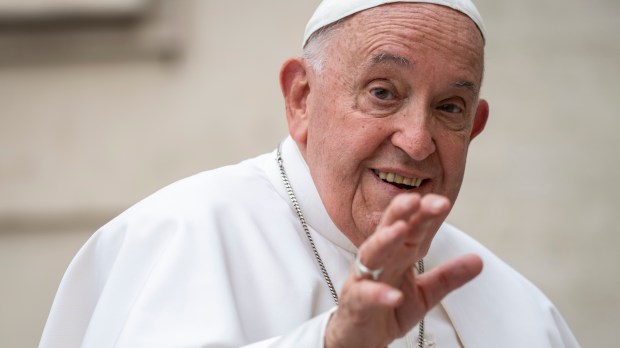This year, Palermo is having a special 5-day celebration to mark the 400th anniversary of the discovery of the relics of its patroness, St. Rosalia. She became especially beloved because the following year (1625) her intercession saved the city from a plague. Pope Francis wanted to use this “special occasion” to express his spiritual closeness to the people of this historic city, plagued today by violence rather than illness.
St. Rosalia, who lived in the 11th century, came from a noble family, but chose to renounce the pleasures of court life to life as a hermit, consecrating her virginity to God. In the Pope’s words, she handed over “her own existence” and abandoned “the wealth of the world.”
Christians are those who always love
“The life of the Christian, both in the times when our hermit Virgin lived and in our own, is constantly marked by the cross,” Pope Francis continued. “Christians are those who always love, but often in circumstances in which love is not understood or is even refused. It remains a countercultural choice today,” he added.
He invited the people of Palermo to imitate their patroness, “renouncing the superfluous” and “adopting the logic of the Gospel, which is hope.”
This hope in God and in the eternal joys of heaven helps people to “make room for love in order to give it to others.”
The Pope encouraged them to be a “beacon of hope” and to ask St. Rosalia, a “woman of prayerful silence, to dispel fears and overcome the resignations that suffocate the roots of goodness, so as to be bold disciples of the Master and builders of hope.”
St. Rosalia’s life
Not many details are known about the saint’s life. An inscription in the cave where she lived as a hermit mentions her noble family, and an oral tradition recorded by a local historian says that she arrived in Palermo as part of the court of Queen Margaret, wife of King William I “The Bad.”

She abandoned this life to live as a hermit in the mountains outside the city. There is reason to believe she may even have had a wall built to close her into the cave to ensure her solitude with God (presumably with some opening to allow the entry of food and drink).
She died on September 4, 1170, probably in the very cave on Mount Pellegrino where she had lived her last years. The Archbishop of Palermo at the time, Gualtiero Offamilio, seems to have declared her a saint immediately, as references to her as St. Rosalia are found less than 30 years later.



